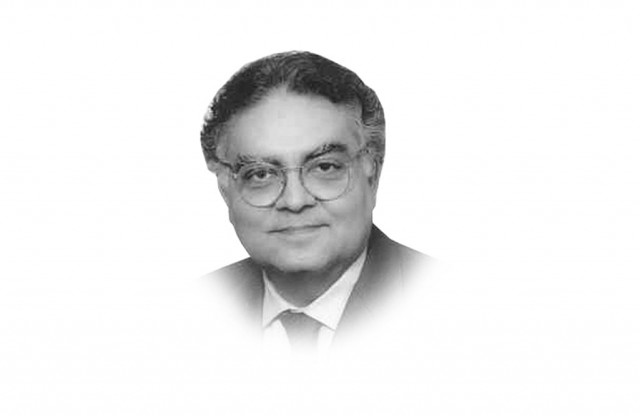Rediscovering Pakistan
To build a better future, we will have to rediscover the values of enlightenment, love and human development.

Rediscovering Pakistan
Sir Syed Ahmad Khan’s education movement was based on his view that science, reason and the idea of development in the contemporary world were not in conflict with Islam. Indeed, for Muslims to progress and be free it was necessary to embrace modern education and to engage politically with the contemporary world on the basis of shared principles.
Sir Muhammad Iqbal’s luminous poetry served to remind Muslims that humans are made in the highest mould. Therefore, the existential challenge is to apprehend our God-given freedom, and to achieve a connection with God through self-actualisation in the pursuit of truth, beauty and love. It was this insight that informed his famous line: “Take selfhood to such a high level that God may ask man what is your will”. Hence, we are led to Iqbal’s murshid, Jalaluddin Rumi: “There is no law in our religion except love”.
The political philosophy of Muhammad Ali Jinnah unambiguously propounded the principles of constitutionalism, law and the equality of all citizens, regardless of their religious beliefs. When the Cabinet Mission Plan offered a ‘zonal scheme’ for a decentralised Indian state, Jinnah and Gandhi readily accepted, but it was rejected by Nehru and the Congress. This triggered the decision in 1946 to form an independent state of Pakistan. It was in his first speech before the constituent assembly of Pakistan that Quaid-i-Azam Muhammad Ali Jinnah articulated the principles of a modern democracy for Pakistan in which religion was to be a matter for the individual but not the state.
Clearly, the three elements — the spiritual, philosophical and political principles — that constituted Muslim nationhood had propounded enlightenment, the awakening of human consciousness, material development and freedom within a democratic constitutional order. These founding principles were gradually eroded during Pakistan’s tragic trajectory of politics, power and pelf, till an antithesis emerged: Bigotry and a closing of the mind frustrated Sir Syed Ahmad Khan’s dream of achieving an educated sensibility; systematic inculcation of hate in state-funded madrassas began to close the avenues to the heart through which Iqbal’s spiritual awakening of Muslims could be achieved; an economic structure that enriched a few while perpetuating mass poverty undermined the idea of equality of economic opportunity, so basic to democracy; and a power structure took root in which elected governments became a facade for military rule and where the state nurtured violent extremist groups, thereby making a travesty of Mr Jinnah’s dream of a democratic Pakistan. All this happened not because of a foreign conspiracy against Pakistan and Islam. Rather, it occurred because the pursuit of power by some politicians and state institutions ignored the principles on which Pakistan was founded, and were unconstrained by considerations of rationality and the public interest.
To build a better future, we will have to rediscover the values of enlightenment, love and human development articulated by the founding fathers. At the same time, each organ of the state must function within its specified domain in order to strengthen the edifice of constitutional democracy, essential to the idea of Pakistan.
Published in The Express Tribune, June 28th, 2011.















COMMENTS
Comments are moderated and generally will be posted if they are on-topic and not abusive.
For more information, please see our Comments FAQ